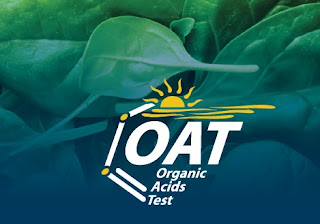Increased oxalates are highly correlated with many chronic illnesses.
Oxalate (and its acid form, oxalic acid), is an organic acid that is primarily derived from three sources: the diet, fungus (such as Aspergillus and Penicillium), possibly Candida, and also human metabolism. The high correlation between arabinose and oxalates indicate that intestinal yeast/fungal overgrowth is likely the main cause for elevated oxalates in the autistic spectrum population (studies show that oxalates in the urine are much higher in individuals with Autism Spectrum Disorders than in nonautistic children). The deposition of oxalates in critical tissues such as brain and blood vessels, the oxidative damage caused by oxalate salts, and the deposition of oxalate mercury complexes in the tissues are some of major issues linked to high oxalates. Foods especially high in oxalates are often foods thought to be otherwise healthy, including spinach, beets, chocolate, peanuts, wheat bran, tea, cashews, pecans, almonds, berries, and many others. People now frequently consume “green smoothies” in an effort to eat “clean” and get healthy, however, they may actually be sabotaging their health. Please read the BROCHURE on oxalates to learn about their danger and how to decrease its levels.
The Organic Acids Test by The Great Plains Laboratory is the only OAT on the market that evaluates levels of oxalates in urine. You can easily order this test through RED Laboratories. The test is done on first morning urine. 30 mL of first morning urine before food or drink is suggested. Patients should avoid apples, grapes (including raisins), pears, cranberries and their juices 48 hours prior to specimen collection. Avoid arabinogalactan, echinacea, reishi mushrooms, and ribose supplements for 48 hours before collection. Freeze the sample immediately.



